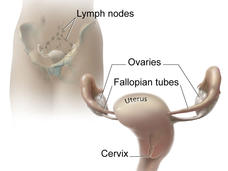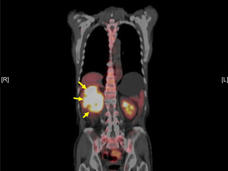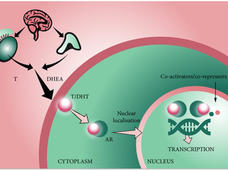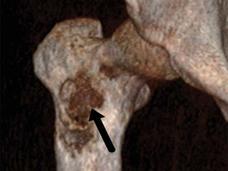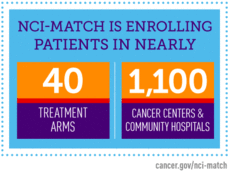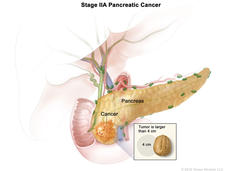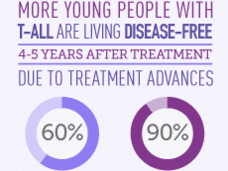Clinical Trial Results - Cancer Currents Blog
Reports on findings from cancer clinical trials, with commentary from leading researchers on how the trial results will affect patient care.
-
Tagraxofusp Proves Effective for BPDCN, A Rare Blood Cancer
New findings from a clinical trial of the drug tagraxofusp confirm its efficacy against the rare blood cancer blastic plasmacytoid dendritic cell neoplasm (BPDCN).
-
A Vaccine to Treat Non-Hodgkin Lymphoma Advancing in Clinical Trials
In some people with non-Hodgkin lymphoma (NHL), treating a single tumor with an in situ vaccine can help to shrink, or eliminate, tumors in other parts of the body, findings from a small clinical trial suggest.
-
Immunotherapy Drug with Two Targets Shows Promise against HPV-Related Cancers
The investigational immunotherapy drug bintrafusp alfa (also called M7824), a bifunctional fusion protein, shrank the tumors of some patients with advanced HPV-related cancers, according to results from a phase 1 clinical trial.
-
Trial Examines Value of Lymph Node Surgery in Advanced Ovarian Cancer
Surgery to remove all the lymph nodes in the area around an advanced ovarian tumor did not improve survival in a recent randomized clinical trial. The study also found systematic lymphadenectomy was associated with more frequent serious complications.
-
Targeted Therapy–Immunotherapy Combinations Effective for Advanced Kidney Cancer
In two clinical trials, combination treatments that included an immune checkpoint inhibitor and axitinib (Inlyta) led to better outcomes for patients with advanced kidney cancer than treatment with sunitinib (Sutent), the standard initial therapy.
-
Darolutamide Delays the Spread of Some Prostate Cancers
The investigational drug darolutamide can help delay the spread of prostate cancer in some men with the disease, a recent clinical trial shows. In addition, the drug caused fewer side effects than similar prostate cancer drugs.
-
UK Clinical Trial Compares E-cigarettes, Nicotine-Replacement Products for Smoking Cessation
Researchers in the United Kingdom have found that e-cigarettes combined with counseling may be more helpful to smokers trying to quit tobacco than counseling and nicotine-replacement products, such as patches, gums, and lozenges.
-
Treatment for Children with Leukemia Also Effective for Adolescents, Young Adults
A clinical trial found that an intensive treatment regimen developed specifically for children with acute lymphoblastic leukemia is also effective for older adolescents and young adults with the disease.
-
Immunotherapy Effective in Alveolar Soft Part Sarcoma
People with advanced alveolar soft part sarcoma (ASPS), a rare cancer, appear to benefit from a type of immunotherapy called an immune checkpoint inhibitor, according to results from a small clinical trial.
-
Whole- and Partial-Breast Radiation Effective at Preventing Breast Cancer from Returning
In women with early-stage breast cancer, two clinical trials have shown that both whole- and partial-breast radiation therapy are effective at preventing the cancer from returning after breast-conserving surgery.
-
Vitamin D Supplements Don’t Reduce Cancer Incidence, Trial Shows
In the largest-ever randomized trial testing vitamin D for cancer prevention, the supplement did not lower the risk of developing cancer. The Vitamin D and Omega-3 Trial (VITAL) includes a nationally representative sample of nearly 26,000 participants.
-
Targeted Treatment for Rare Digestive Tract Cancers May Extend Survival
In an early-phase trial, dabrafenib plus trametinib shrank tumors in patients with biliary tract cancer and adenocarcinoma of the small intestine whose tumors had a specific mutation in the BRAF gene.
-
Tailored Radiation to Treat Brain Metastases Reduces Impact on Cognitive Function
Results from a clinical trial suggest that, in patients with brain metastases, an advanced radiotherapy technique limits harm to patients’ cognitive function without affecting the treatment’s effect on tumors.
-
Olaparib after Initial Treatment Delays Ovarian Cancer Progression
In a recent trial, the PARP inhibitor olaparib substantially delayed ovarian cancer from coming back after the first line of chemotherapy. Could the findings change the standard of care for newly diagnosed ovarian cancer with a BRCA mutation?
-
NCI-MATCH Update: More Labs, New Arms, and Initial Findings
NCI’s Dr. Lyndsay Harris provides an update on the NCI-MATCH trial, including the opening of new trial treatment arms and the addition of new laboratories to perform testing on tumor samples of prospective trial participants.
-
Trial Results Highlight Changing Lung Cancer Treatment Landscape
Results from two large clinical trials should cement the value of the drugs brigatinib (Alunbrig) and durvalumab (Imfinzi) in treating non-small cell lung cancer (NSCLC). The trial results, several experts said, confirm that the drugs can improve the outcomes of patients with advanced NSCLC.
-
Nivolumab and Ipilimumab Effective against Melanoma That Has Spread to the Brain
Results from a clinical trial show that the combination of nivolumab (Opdivo) and ipilimumab (Yervoy) halted the growth of or shrank metastatic brain tumors in more than half of participants with melanoma that had spread to the brain.
-
Altering Chemotherapy Improves Outcomes in Early-Stage Pancreatic Cancer
Results from two clinical trials are expected to improve the outlook for some people with early-stage pancreatic cancer. Altering the chemotherapy drugs used and the timing of treatment substantially improved survival.
-
Trial Produces Practice-Changing Findings for Some Children, Young Adults with Leukemia
This NCI-funded Children’s Oncology Group trial tested the addition of nelarabine (Arranon) to standard treatment for children and young adults with T-cell acute lymphoblastic leukemia (T-ALL).
-
Selumetinib Continues to Show Promise in Children with NF1
In a phase 2 clinical trial, the investigational drug selumetinib shrank tumors in some children with the genetic syndrome neurofibromatosis type 1 (NF1). The tumors, called neurofibromas, can cause pain, difficulty breathing or walking, and disfigurement.



